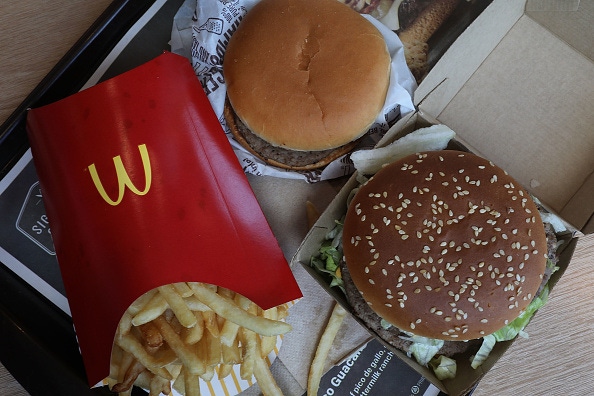For McDonald’s, and fast food companies like them, the evolution of what a customer wants in relation to what a customer wants to know has never been higher.
December 5, 2018

By Laura Handke
“On any given day, McDonald’s serves about 28 million people in the United States,” says McDonald’s Director of Quality, U.S. Supply Chain Management, Ernie Meier. “And those people tell us what they think about our business and how we do business.”
For McDonald’s, and fast food companies like them, the evolution of what a customer wants in relation to what a customer wants to know has never been higher.
Meier says that the company is facing customers who want to know about their food but aren’t informed about where it comes from, which makes conveying food chain information more difficult.
With less than 2% of the population engaged in production agriculture, trust has become McDonald’s greatest challenge in meeting the rising demands of their new customer base.
“We have a problem with trust,” says Meier. “Our customers don’t trust us—one of the most common questions we get is: “Is your hamburger all beef?” There are people who believe that McDonald’s created a company called 100% beef so that we could say that our hamburger patties are 100% beef.”
Consumers are concerned with not only the quality of the food they eat but also their food’s degree of processing, chemical additives and the ethical sourcing of the ingredients used to make their food.
In the 1950s, when the restaurant began doing business, manufacturing and scalability were the biggest challenges the company had to overcome. Today, the efficiency and scalability that made McDonald’s a household name have created distrust amongst its customers, Meier says.
“Our size is used against us. People ask, ‘How can you sell a hamburger for $1.00? You must be doing something unethical to make that happen.’ I think that customers do trust the people raising the animal; the lack of trust is in the companies making the conversion from animal to meat,” he says.
“The number one source of information for today’s consumers is social media. They [customers] know more about your products than you do.”
In the Age of the Customer, Meier shares that at the peak of the customer demand pyramid is the desire for food that is “natural and minimally processed,” which goes all the way to where and how the animal was raised, what it was fed and what antibiotics that animal was given.
How and where an animal was raised is information that McDonald’s can provide. With 33 suppliers on the “approved” supply list, many have been doing business with the company since the very beginning, over 60 years.
Meier shares that the company has a lot of work to do in building trust with their customers, but says the company is making steps in the right direction.
“We have provided educational pathways for our employees; moved to cage-free, antibiotic-free chicken and continue the journey of antimicrobial stewardship,” he says. “We are going to do the right thing, but we want to know what the right thing is before we do it.”
Handke is a freelance ag journalist based in Kansas City, Mo.
You May Also Like



